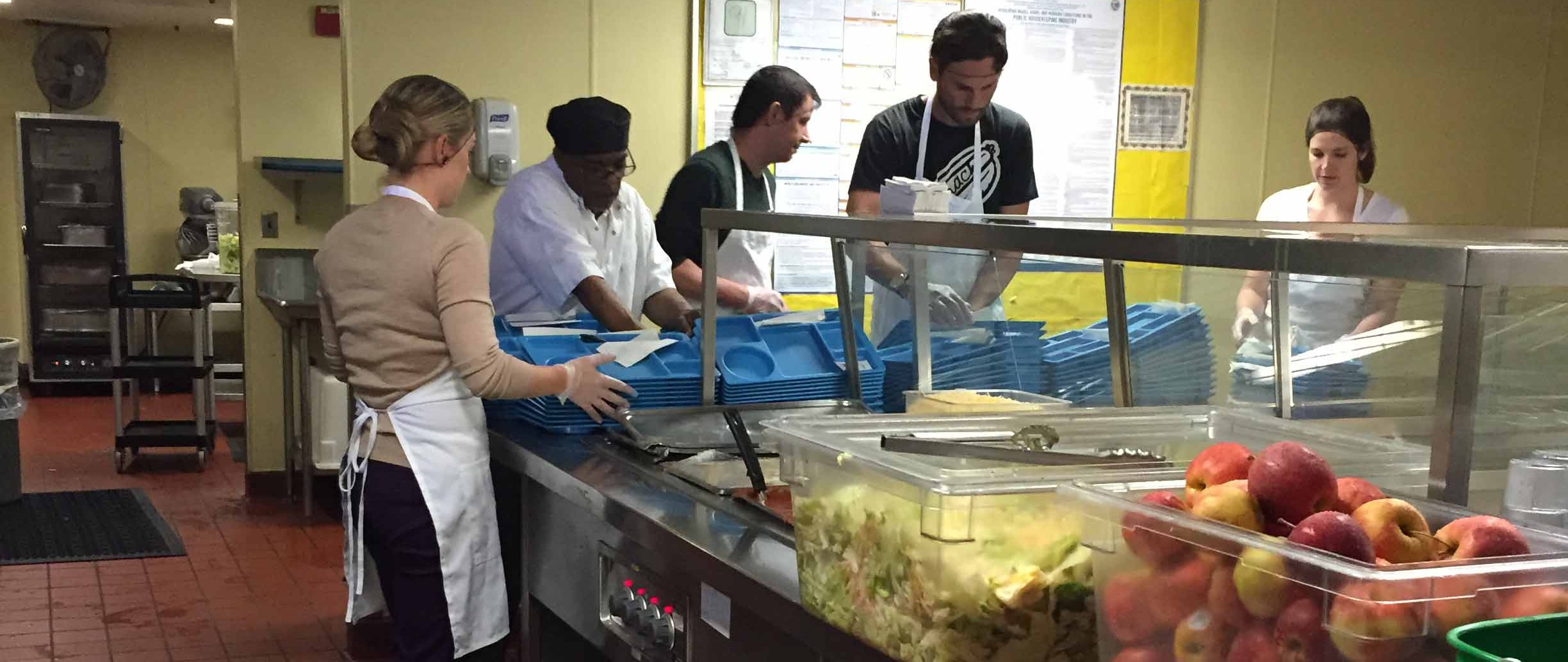“Oh look, Keith is here, too!” said Kristin as she signed in. “I wonder if we got double booked.”
The woman standing next to her looked up from her conversation with the receptionist. A deep, raspy voice tumbled out of her mouth. “Keith is my man name,” she said.
“Oh,” said Kristin, bubbly as ever, “well that must get confusing!”
“It sure does get confusing!” They laughed, just like two girls in a nail salon.
This was my introduction to the ECS’s Next Door Shelter at 1001 Polk Street.
Kristin led the way to the cafeteria, flitting around like she was giving a tour of her home. Saying hi to the staff and “guests”, showing us the library that Mallory built. Her ease melted away my discomfort as we grabbed our hairnets and quoted Wayne’s World.
Our tasks were just like you’d expect. Clean the kitchen, mop the floors and form an assembly line with other bright-eyed, food-serving volunteers trying to do their part for the good of mankind, or whatever.
What I didn’t expect was how normal the people were that we were serving. They weren’t cracked out and haggard, they looked like anyone else, wearing flip-flops and ear buds, ironic t-shirts and Giants hats.
These were just people, trying make it work.
And then there is Mallory Hasick, Volunteer & Community Outreach Manager for ECS. Mallory has devoted the last 7 years — the better half of her 20s — to ECS, doing service for other people. A concept that is embarrassingly foreign to me. We were all there because of Mallory.
I told her once I felt fundamentally opposed to feeding the homeless. It felt like I was just perpetuating the problem, adding more stick to the Band-Aid. It can’t be that impactful, I argued.
She said, “I think the most impactful part is making people feel human again. It’s about building back self-confidence. I know it can’t be measured, but just being there and smiling really does make a difference…. No one wants to be homeless.”
So here I was, feeding the homeless, because of Mallory.
I looked up from my remedial task of adding apples to the trays when a pair of kind, hopeful eyes greeted me. “Thank you so much,” said an elderly man with gray shaved hair and a blue polo shirt. I smiled. “You’re so welcome.”
This wasn’t a beggar, a deadbeat, a drug addict. This was just a man. And we were just two people, co-existing in the world, sharing a moment.
